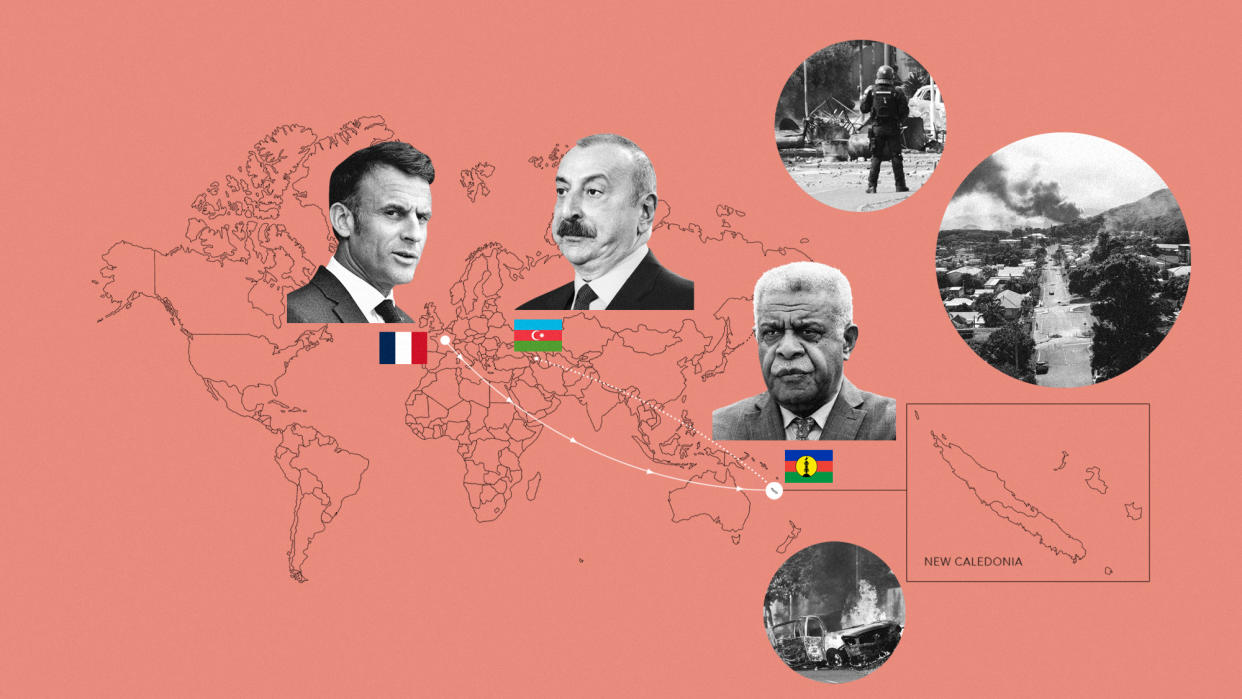New Caledonia: is Azerbaijan to blame for deadly riots in French overseas territory?

A state of emergency has been declared in the French Pacific territory of New Caledonia following three days of unrest that has left five people dead and dozens more injured.
The catalyst for the disorder is new legislation that would expand the eligible electorate – diluting the voting power of the indigenous Kanak people, the majority of whom favour independence from France. But French Interior Minister Gerald Darmanin claimed the violence had been fomented by a nation 8,500 miles away from the archipelago.
"Some of the Caledonian independence leaders have made a deal with Azerbaijan, that's undeniable," he told French television. A spokesperson for Azerbaijan’s Foreign Ministry rejected the "baseless accusations".
What did the commentors say?
France has been a historic ally of Azerbaijan's neighbour and rival, Armenia. Emmanuel Macron's vocal support for Armenia during the conflicts over the contested enclave of Nagorno-Karabakh in 2020 and 2023 precipitated a "rapid and overt diplomatic deterioration" in relations between Paris and Baku, said France 24.
Since then, Baku has openly courted pro-independence activists in France's sometimes restive overseas territories. The French government's anti-foreign interference unit, Viginum, also found evidence that an online smear campaign targeting the Paris 2024 Summer Olympics originated with "an actor close to Azerbaijan".
And in the wake of this week's riots, the French government has drawn attention to the "sudden emergence of Azerbaijani flags alongside Kanak symbols", said The Guardian, and to "pro-Azerbaijani social media accounts" circulating an "edited montage" that appears to show two white police officers with rifles aimed at dead Kanaks.
Azerbaijan's role in past "destabilisation" campaigns is undeniable, said Le Monde. Last year, pro-independence activists from several French overseas territories were invited to the Azerbaijani capital to form the "Baku Initiative Group Against French Colonialism". The group's president, Abbas Abbasov, has denied interference in New Caledonia, but during an earlier wave of protests in March, "T-shirts bearing his organisation's logo were worn by protesters on site".
Yet although there is "little doubt" that actors linked to Azerbaijan have stoked tensions in New Caledonia in recent months, "their impact and Baku's role in the violence of the last three days remain open to question".
Let's not forget that "major inequalities disadvantaging the Kanak people persist", the newspaper said in an editorial, as does economic uncertainty, a lack of opportunity for young people, and mistrust in the government's impartiality on the independence issue.
What's next?
Emmanuel Macron's short-term priority will be to restore order. An extra 1,000 personnel have been sent to the archipelago in addition to 1,700 already deployed, on top of existing measures including "a curfew and a ban on TikTok", said Sky News.
Macron may have "wanted to teach the rioters a lesson in toughness" by allowing Tuesday's vote on the controversial electoral reforms to go ahead, said Le Monde, but the passage of the bill is a "Pyrrhic victory", as "nothing will be possible without a broad agreement encompassing economic, social and institutional issues".
New Caledonia's next provincial elections, which must be held before December, will provide an opportunity to assess how the unrest has affected sentiment on the archipelago. At the last elections, in 2019, pro-independence candidates won 28 of the 54 parliamentary seats.

